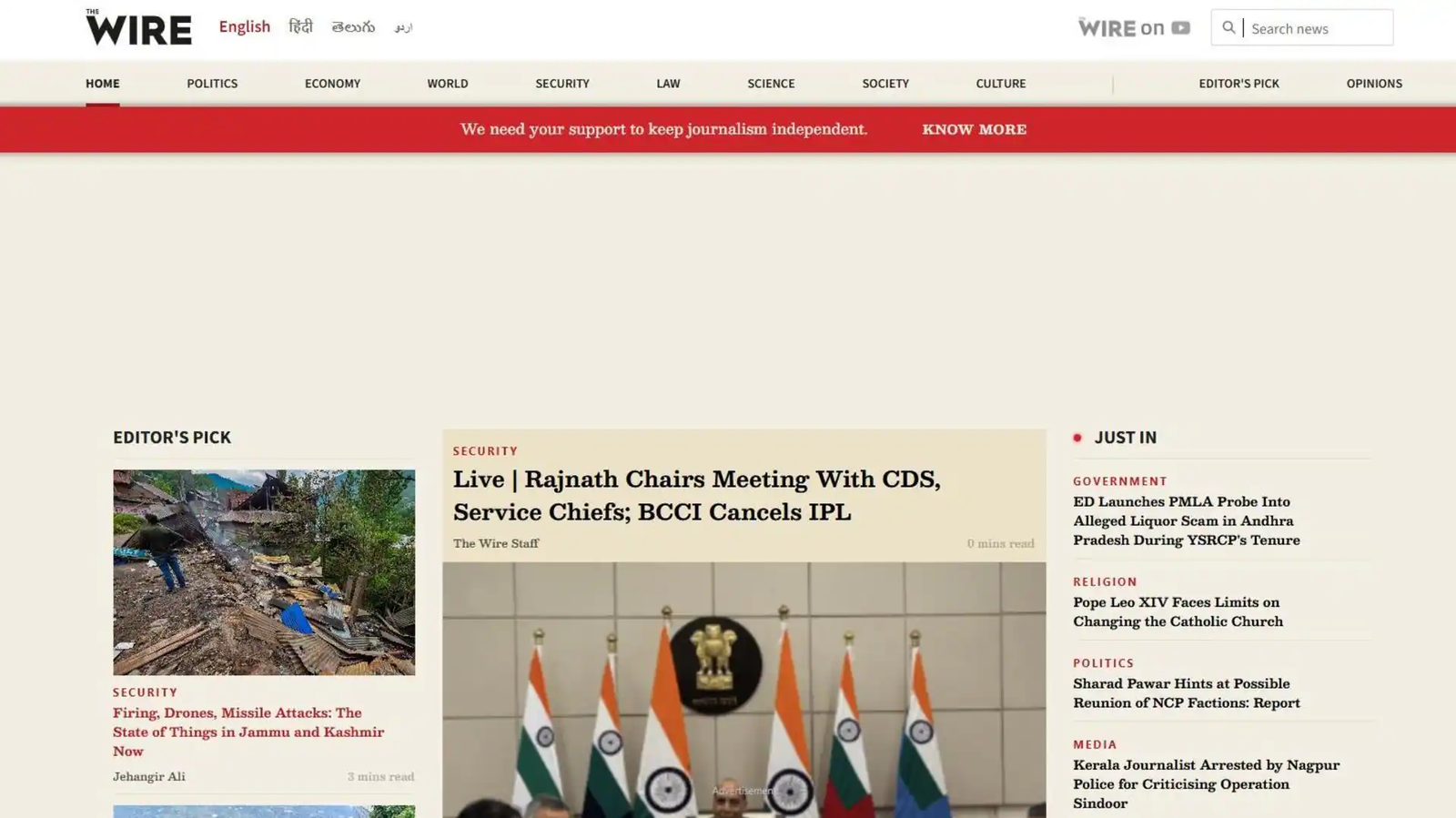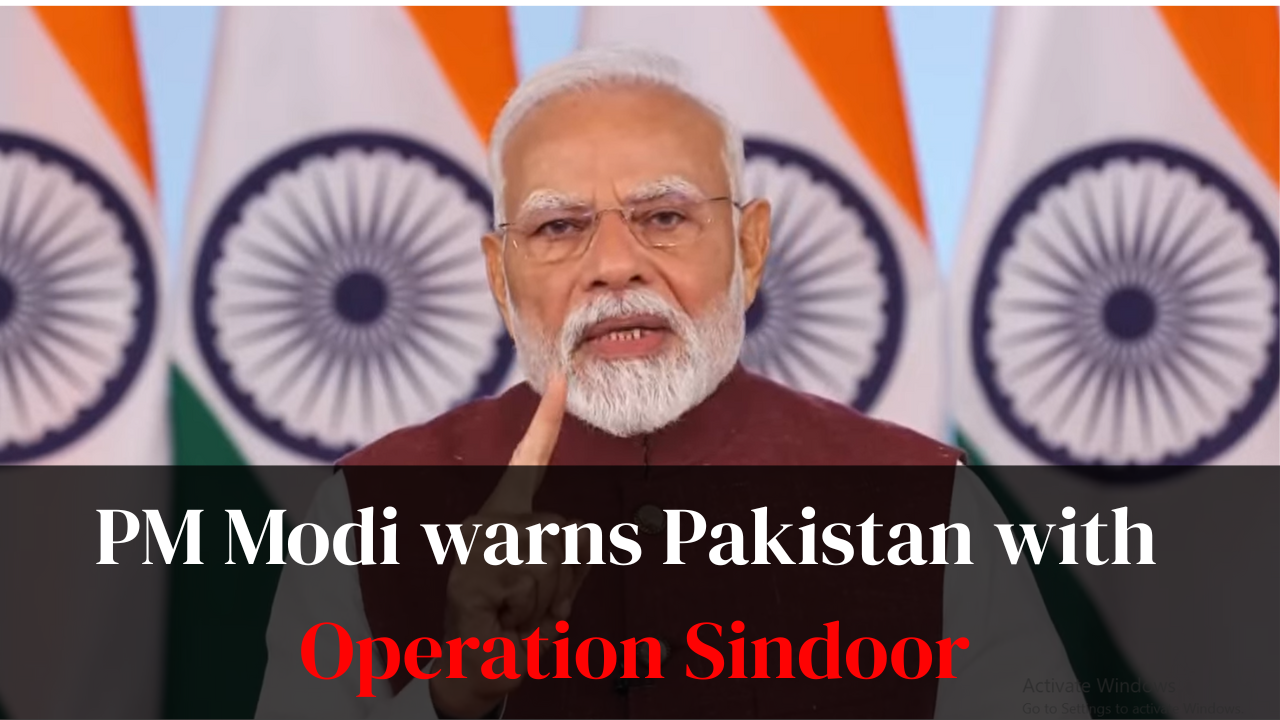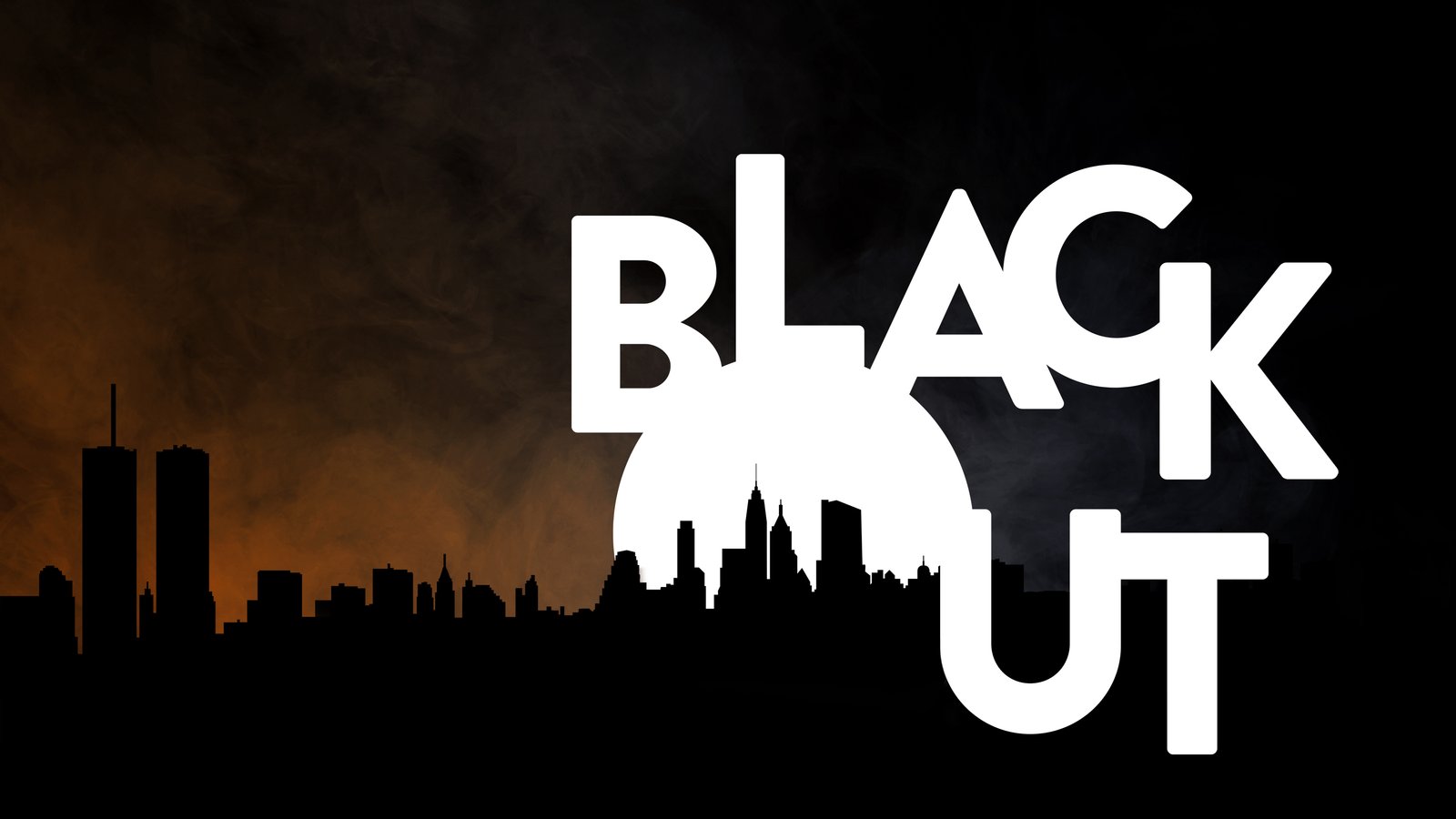Introduction: When News Becomes the News
Imagine waking up one day and realizing your go-to news website just won't load. You refresh it. Try a different browser. Switch to mobile data. Still nothing. That’s exactly what happened to readers of The Wire News this week—and it wasn’t a technical glitch. The real issue? Government censorship.
On May 9, The Wire, one of India’s most prominent independent news portals, declared that its website had been blocked across several parts of the country. The move, allegedly triggered by orders from the Ministry of Electronics and Information Technology under the IT Act, 2000, has ignited a fiery debate about freedom of speech, press autonomy, and state control.
The Wire’s Bold Statement: “This Is Censorship”
In a passionate and strongly worded public statement, The Wire News didn’t mince words. They called the action “a clear violation of the Constitutional guarantee of freedom of the press,” and described the block as “arbitrary” and “inexplicable.” Their message? Loud and clear: This is censorship, and we won’t take it lying down.
They’re not just sitting quietly, either. The portal is preparing legal action and rallying its readers for support. “Your support has kept our work going for the past 10 years,” the statement read. “And we are counting on all of us standing together at this time.”
Is the Site Completely Inaccessible?
Here’s where it gets tricky. While users in Delhi reported normal access to thewire.in, others across the country weren’t so lucky. Reports poured in from various cities claiming the site simply wouldn’t open—no error message, just blank screens or failed loads.
Curiously, the Indian government has made no official announcement confirming or explaining the action. That silence is only fueling more questions and concerns.
Freedom of the Press: More Than Just a Right
Let’s take a step back. Why does this matter? Because the press isn’t just another business—it’s the backbone of any democratic society. And when a government starts deciding what news you can or cannot access, it sets a dangerous precedent.
The Wire India has long been a thorn in the side of those in power. Known for its investigative journalism, hard-hitting opinions, and commitment to reporting facts without fear or favor, it's not surprising that the site may have ruffled some feathers. But silencing it? That’s a move that speaks volumes.
The Bigger Picture: A Surge in Censorship
This wasn’t an isolated case. Just a day before The Wire News went dark in parts of India, the social media platform X (formerly Twitter) made a shocking revelation. The Indian government had issued orders to block access to several X accounts, including those of independent news outlets like Maktoob Media, The Kashmiriyat, and Free Press Kashmir.
And the reason? Rising tensions between India and Pakistan after the Pahalgam terror attack on April 22, which tragically killed 26 people—mostly tourists. In response, India launched Operation Sindoor, targeting terrorist camps across the border.
Operation Sindoor and National Security: A Fine Balance
Following the Pahalgam attack, India struck back hard. The Indian Army launched coordinated cross-border strikes hitting nine terrorist camps in Pakistan. Drone attacks were reportedly repulsed, and ceasefire violations were met with a "befitting reply."
While national security is undeniably crucial, should it come at the cost of press freedom? That's the million-dollar question. Blocking journalists and media platforms from reporting developments only feeds speculation, rumors, and mistrust.
X (Twitter) Complies But Pushes Back
Elon Musk’s X platform, while complying with the Indian government’s orders, didn’t shy away from calling them out. In a public note, X stated that many of the blocked accounts hadn’t violated any Indian laws—at least none that were shared with the company.
“To follow the orders, we are blocking these accounts in India only,” said X. “But we do not agree with the government’s demands.” They emphasized that their decision, although tough, was necessary to ensure the platform’s continued operation in India.
It’s a classic case of being stuck between a rock and a hard place—follow the rules or lose access to one of the world’s largest markets.
Why Should You Care About The Wire News Block?
This isn’t just about one website. It’s about the kind of country we want to live in. If a government can quietly shut down a media house without transparency or explanation, what’s stopping it from doing the same to others? Or worse—what’s stopping it from shutting down your voice?
The Wire News represents a broader fight—for free speech, for open dialogue, and for the right of every Indian to access uncensored information.
Are We Witnessing the Erosion of Digital Rights?
The IT Act, 2000 gives the Indian government sweeping powers to regulate digital platforms, often without court approval. While these powers may be necessary in some cases, their misuse can stifle dissent, bury inconvenient truths, and dismantle public trust.
With over 8,000 X accounts reportedly restricted in India over the past few weeks alone, there’s growing unease about how these laws are being applied—and who they’re really meant to protect.
Voices of Support: The Public Rallies for The Wire
If there’s one silver lining, it’s the outpouring of support for The Wire India. Journalists, academics, civil rights groups, and everyday readers have taken to social media to denounce the block and demand answers.
#IStandWithTheWire has been trending, showing that people aren’t ready to give up on independent media just yet.
What Happens Next?
While The Wire News gears up for a legal battle, the bigger question remains: Will this set a precedent for further censorship? Or will public pressure force a rollback?
Either way, this moment is a test—not just for the media, but for every citizen who values transparency, accountability, and truth.
Read More: INS Vikrant: India's Naval Powerhouse Built at Home
Conclusion: Censorship Is a Slippery Slope
Let’s call it what it is—blocking The Wire News is censorship. And it’s not just a tech issue. It’s a moral one. When a government blocks access to a media platform without clear reasons or accountability, it chips away at the very foundation of democracy.
This isn’t about left or right, liberal or conservative. It’s about the right to know. The right to question. The right to read a story and decide for yourself what to believe.
If we lose that, we lose more than just a news website—we lose a piece of our freedom.
Explore other popular Posts:
Blog | News | Entertainment | Education | Sports |
Technology | Cryptocurrency | Stock | Home | Sitemap





